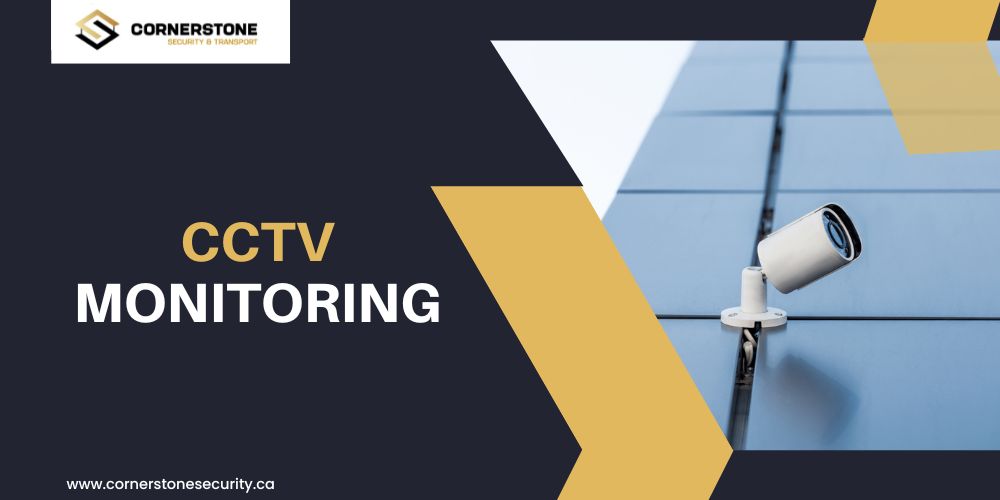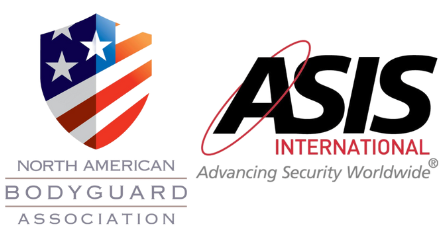In an increasingly complex and dynamic world, security and surveillance have become paramount concerns for businesses, organizations, and individuals. The need to protect people, property, and assets from potential threats and criminal activities is a top priority. To address these challenges, advanced technologies have been developed, and one such technology that has revolutionized the security landscape is Closed-Circuit Television (CCTV) monitoring.
CCTV monitoring refers to the use of strategically placed cameras to capture and record video footage of specific areas, providing real-time monitoring and surveillance capabilities. These cameras are connected to monitoring systems that allow trained personnel to observe and analyze the captured footage, ensuring a proactive response to security incidents. In this article, we will explore the power of CCTV monitoring and how it enhances security and surveillance measures.
Enhancing Security through CCTV Monitoring
Improved Situational Awareness:
CCTV monitoring offers unparalleled situational awareness, allowing businesses and security personnel to have a comprehensive view of their premises. By strategically positioning cameras in key areas, blind spots can be minimized, ensuring that no activity goes unnoticed. Real-time monitoring of the captured footage enables quick response times and timely intervention in case of security breaches or suspicious activities.
Deterrence of Criminal Activities:
The presence of CCTV cameras acts as a powerful deterrent to potential criminals. Knowing that they are being monitored and recorded significantly reduces the likelihood of criminal activities, such as theft, vandalism, or unauthorized access. CCTV monitoring creates a sense of vigilance and accountability, discouraging individuals from engaging in unlawful acts within the monitored areas.
Effective Incident Management:
In the unfortunate event of a security incident, CCTV monitoring plays a vital role in effective incident management. The recorded footage serves as valuable evidence for investigations, helping law enforcement agencies identify perpetrators, gather crucial information, and support legal proceedings. Additionally, the real-time monitoring capabilities of CCTV systems enable immediate response and intervention, minimizing the impact of incidents and preventing further escalation.
Remote Viewing and Monitoring:
One of the significant advantages of modern CCTV monitoring systems is the ability to remotely view and access the captured footage. With advancements in technology, businesses can now monitor their premises from anywhere with an internet connection. This flexibility empowers businesses and security personnel to monitor multiple sites simultaneously and respond promptly to incidents or emerging threats. Remote viewing also allows for efficient management of geographically dispersed locations, providing a centralized monitoring approach.
Integration with Other Security Systems:
CCTV monitoring can be seamlessly integrated with other security systems to create a robust and interconnected security infrastructure. Integration with access control systems, alarm systems, and fire detection systems enhances the overall effectiveness of security measures. These integrated systems work in harmony, allowing for seamless communication and coordinated responses to security events.
The Importance of CCTV Monitoring in Today’s Security Landscape
In recent years, the security landscape has witnessed an alarming increase in criminal activities and security breaches. Businesses and individuals are facing various threats, ranging from theft and vandalism to unauthorized access and safety concerns. In such a challenging environment, CCTV monitoring has emerged as a powerful tool to enhance security measures and safeguard people, property, and assets.
The next section of this article will delve deeper into the specific benefits and advantages of CCTV monitoring, addressing key factors such as crime prevention, employee and customer safety, loss prevention, and operational efficiency. By understanding the multitude of benefits offered by CCTV monitoring, businesses can make informed decisions and leverage this technology to create safer environments and protect their interests.
Crime Prevention and Deterrence
One of the primary objectives of CCTV monitoring is to prevent and deter criminal activities. The mere presence of visible CCTV cameras can significantly reduce the chances of crimes being committed within the monitored areas. Potential criminals are aware that their actions are being recorded, increasing the risk of detection and apprehension.
CCTV monitoring serves as a powerful deterrent against theft, vandalism, and other unlawful activities. Whether it’s a retail store, office building, or residential complex, the knowledge that CCTV cameras are in place acts as a psychological barrier for potential intruders. This deterrent effect contributes to maintaining a safe and secure environment for employees, customers, and residents.
Employee and Customer Safety
CCTV monitoring plays a crucial role in ensuring the safety and well-being of employees and customers. By monitoring areas such as entrances, parking lots, and common spaces, businesses can quickly detect and respond to any potential threats or safety concerns.
In case of emergencies, CCTV monitoring enables immediate intervention and facilitates a swift response. Whether it’s a fire, medical incident, or security breach, operators can promptly identify the situation and coordinate with emergency services to mitigate risks and ensure the safety of everyone on-site.
Furthermore, CCTV monitoring enhances the overall security culture within a business or organization. Employees feel reassured knowing that their safety is being prioritized, leading to increased morale and productivity. Customers also feel more confident and comfortable in establishments that have visible security measures in place.
Loss Prevention and Asset Protection
Loss prevention is a critical concern for businesses, particularly in retail and commercial environments. CCTV monitoring provides an effective means of preventing theft, shoplifting, and internal shrinkage. The presence of cameras acts as a strong deterrent, reducing the temptation for individuals to engage in illegal activities.
In the event of theft or suspicious behaviour, CCTV cameras capture valuable footage that can be used as evidence for investigations and legal proceedings. The recorded footage not only aids in identifying perpetrators but also provides crucial details and timestamps that can support the recovery of stolen goods and the prosecution of criminals.
CCTV monitoring also extends to protecting valuable assets and property. Whether it’s high-value equipment, inventory, or intellectual property, businesses can closely monitor and track the movement of assets through the use of CCTV cameras. This ensures that any unauthorized access or attempts at theft are immediately detected and addressed.
Operational Efficiency and Process Improvement
CCTV monitoring not only enhances security but also contributes to operational efficiency and process improvement. By closely observing the captured footage, businesses can identify areas of improvement in their operations, such as optimizing workflow, streamlining processes, and identifying bottlenecks.
For example, retailers can analyze customer behaviour patterns and footfall data to optimize store layouts and product placements. This data-driven approach improves the overall customer experience and helps businesses make informed decisions regarding marketing strategies and resource allocation.
Moreover, CCTV monitoring allows businesses to monitor employee performance, adherence to protocols, and compliance with safety procedures. This enables proactive management and the implementation of corrective measures when necessary, fostering a culture of accountability and professionalism.
Enhancing Security Systems and Emergency Response
CCTV monitoring systems can be integrated with other security systems, such as access control and alarm systems, to create a comprehensive security infrastructure. The integration allows for seamless communication between different components, enhancing the overall effectiveness of security measures.
When an alarm is triggered, CCTV monitoring enables operators to immediately assess the situation by accessing the live video feed. This real-time information helps them make informed decisions regarding the appropriate response. For instance, in the event of a break-in, operators can quickly verify the intrusion and alert the necessary authorities, such as the police, while providing them with valuable details to aid in their response.
Additionally, CCTV monitoring systems can be configured to send real-time alerts and notifications to designated personnel or security teams. These alerts can be triggered by specific events, such as motion detection in restricted areas or tampering with cameras. By receiving instant alerts, security personnel can take immediate action, preventing potential threats from escalating.
Remote Monitoring and Management
Modern CCTV monitoring systems offer the convenience of remote viewing and management. With the advancement of technology, businesses can access their CCTV feeds from anywhere via internet-connected devices, such as smartphones, tablets, or laptops. This capability is especially beneficial for organizations with multiple sites or geographically dispersed locations.
Remote monitoring allows businesses to have a centralized control center where operators can monitor multiple sites simultaneously. This approach increases operational efficiency and reduces the need for physical security presence at every location. Furthermore, remote management enables businesses to respond quickly to incidents or emergencies, regardless of their physical location, ensuring a proactive and timely response.
Privacy and Legal Considerations
While the benefits of CCTV monitoring are undeniable, it is essential to address privacy and legal considerations. Businesses must adhere to relevant laws and regulations governing the use of CCTV systems, particularly concerning the privacy rights of individuals. It is crucial to establish clear policies and guidelines regarding the use, storage, and access to recorded footage to ensure compliance with applicable laws and protect the privacy of individuals within the monitored areas.
Consulting with legal experts and data protection authorities can provide businesses with guidance on complying with privacy regulations and implementing appropriate safeguards to protect sensitive information.
Conclusion
CCTV monitoring has become an indispensable tool in enhancing security and surveillance measures. From crime prevention and deterrence to employee and customer safety, loss prevention, and operational efficiency, CCTV monitoring offers numerous benefits for businesses and organizations.
With its ability to provide real-time monitoring, remote access, and integration with other security systems, CCTV monitoring has evolved into a comprehensive and powerful solution. By leveraging the power of CCTV monitoring, businesses can create safer environments, protect their assets, and respond effectively to security incidents.
However, it is important to approach CCTV monitoring with caution and respect for privacy considerations. Compliance with applicable laws and regulations is essential to ensure that the benefits of CCTV monitoring are balanced with the protection of individual privacy rights.
In an ever-changing security landscape, CCTV monitoring continues to play a vital role in safeguarding people, property, and assets. By embracing this technology and implementing best practices, businesses can enhance their security measures, provide peace of mind to employees and customers, and protect their interests in an increasingly challenging world.

